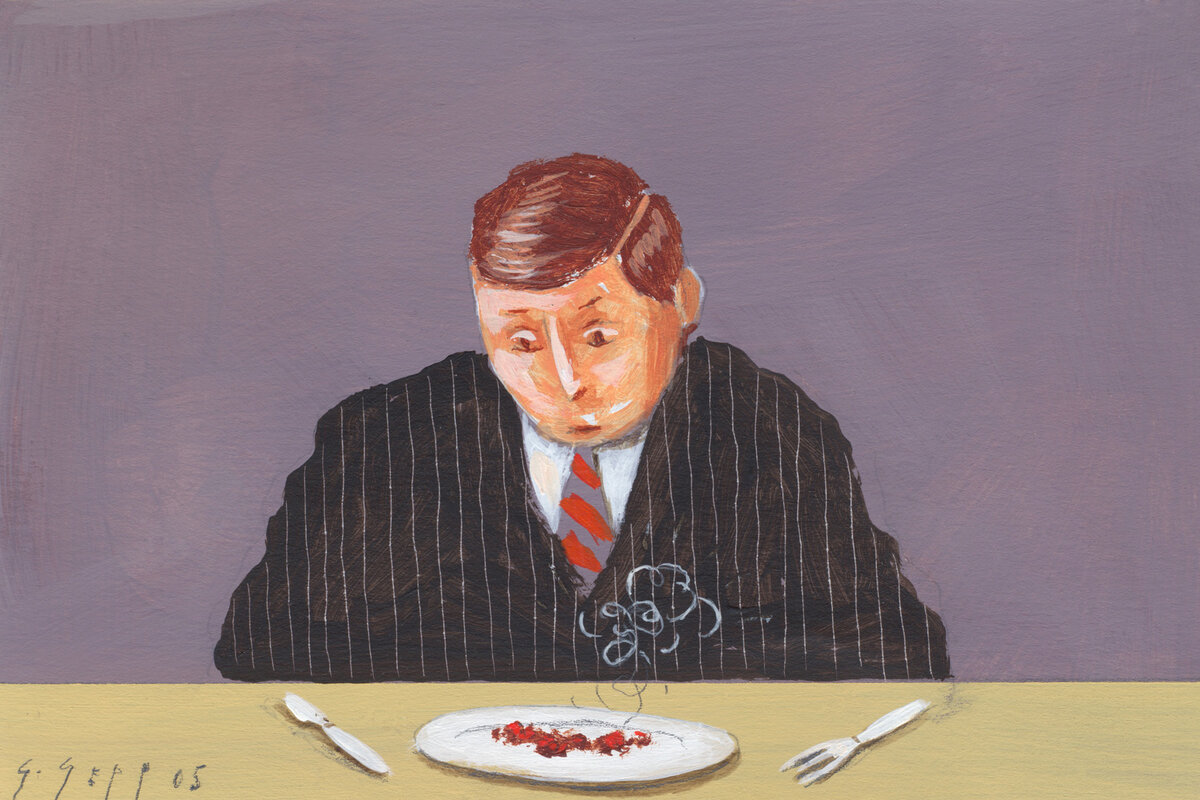Eating Patterns and Healthy Lifestyles
"Once you get used to it, it's not a big deal. I'm not hungry at all in the morning, and this is other people's experience as well. It's just a matter of getting adapted to it."
"From an evolutionary perspective, it's pretty clear that our ancestors did not eat three meals a day plus snacks."
Mark Mattson, neuroscientist, National Institute on Aging, Maryland
"When you have low insulin and low IGF-1 [hormone; insulinlike growth factor linked to cancer and diabetes], the body goes into a state of maintenance, a state of standby. There is not a lot of push for cells to grow, and in general the cells enter a protected mode."
Valter Longo, Longevity Institute, University of Southern California

The Fountain of Youth may not be a fountain after all, but a discovery not yet gained, that using some kind of protocol -- perhaps with the more sparing use of food to stall cell-aging -- humankind could be capable of living longer, living healthier lives. Dr. Mattson speaks of not having eaten breakfast for the last 35 years of his life, and since he never liked having breakfast to begin with, not missing one whit bypassing the opportunity to stoke up the body engine after a good night's sleep.
Of course, there have been some scientific enquiries into the fact that many people don't like eating breakfast. One of which appeared to reach the conclusion that if some people in some lines of work -- say for example, an airlines pilot who regularly skips eating breakfast, has an early flight, his brain, not having been given glucose for a prolonged period of time, might not be responding with the same kind of alacrity and accuracy as it would had he eaten breakfast.
Dr. Mattson takes his theory and his own bodily needs which he obviously uses to bolster his assumptions to quite some degree. He sometimes as well skips lunch, indulges in a midafternoon run, and sometime in the afternoon indulges in a meal or a series of smaller meals in a six-hour period that will contain all of his daily calories, which he estimates to be around 2,000.
Three meals a day, at specific intervals throughout the day is a ritual of particularly recent vintage. Through human history food availability has not been as conveniently accessed as it is today. For one thing throughout most of human history, people struggled with food scarcity. A seasonal, episodic opportunity to access food would have prevailed, and people simply adapted to survive.
Part of that survival mechanism was the ability to store calories in the form of fat over the skeleton in times of plenty and the body would retrieve that stored fat at times of food scarcity. Our livers and muscles store carbohydrates as glycogen, and our fat tissue contains energy reserves capable of sustaining the body when food is unavailable.
Dr. Longo has studied the effect of fasting in laboratory mice, discovering that two to five days of fasting monthly had the effect of reducing biomarkers for diabetes, cancer and heart disease. Encouraged by the results, the research has now been expanded to studying those same effects on people. Fasting, explains Dr. Longo, lowers insulin and IGF-1, having the effect of slowing cell growth and development.
Should this be corroborated in further research, the conclusion would result that the process aids in slowing down the aging process, while reducing disease risk factors. Time-restricted feeding, which is what Dr. Mattson himself engages in, suggests cancer risk may be lowered using that technique, while assisting people to control for a moderate, healthy weight.
Alternate-day fasting is being studied at the University of Illinois at Chicago, on obese adults. Dr. Krista Varady has discovered through trials of eight to ten weeks that people lose about six kilos on average, experiencing marked reductions in LDL cholesterol, blood pressure, triglycerides and insulin.
Dr. Mattson's experience in intermittent fasting demonstrated that mice were protected from strokes, Alzheimer's and Parkinson's disease through that feeding regimen, extending life spans by 30 percent. He found that this type of fasting had the effect of increasing proteins protecting brain cells, enhancing the test animals' ability to repair damaged DNA. The stress associated with fasting, he concludes, makes cells stronger.
One benefit of fasting is that it forces the body to shift from the use of glucose for energy to using stored body fat, converted to compounds called ketones. According to Dr. David Ludwig of the Harvard T.H. Chan School of Public Health, ketones represent a "clean" energy source, burning more efficiently than glucose.
Ketones are what the body uses for energy during undiagnosed diabetes, when insulin is no longer produced from the beta cells of the Islets of Langerhans. A characteristic 'milky' odour on the breath reveals that ketones are being burned by the body seeking an energy source, when it can no longer convert ingested glucose in an absence of insulin production.
"It takes a very disciplined person to skip a couple meals every day", cautioned Dr. Ludwig, a protocol that may prove too difficult and which may slow metabolism. He advocates as a more practical approach, to limit sugar int he diet and processed carbohydrates; to replace them with natural fats, protein and unrefined carbohydrates.
Personally, I'd advocate for skipping daily lunch. I've been doing it for 50 years.

The 5:2 diet calls for two days per week of minifasting
where the aim is to go a long stretch, say 14 to 18 hours, without
eating. During these two fasting days, you also eat only about 600
calories, give or take. Viennaslide/the food passionat/Corbis
Labels: Bioscience, Health, Nature, Social-Cultural Deviations

0 Comments:
Post a Comment
<< Home